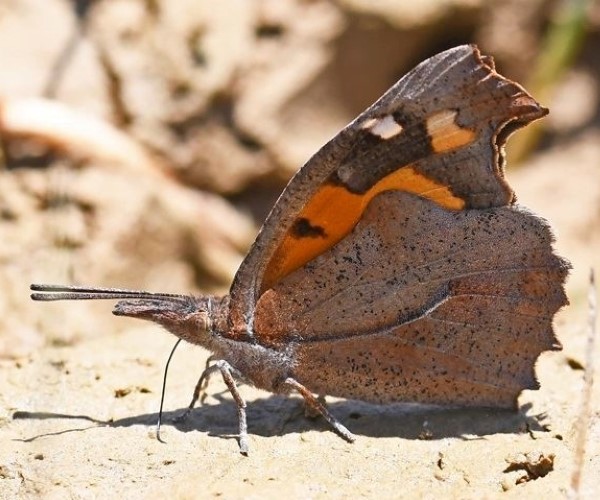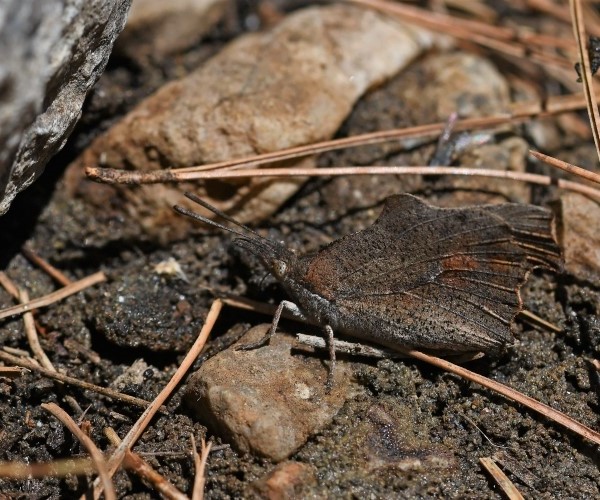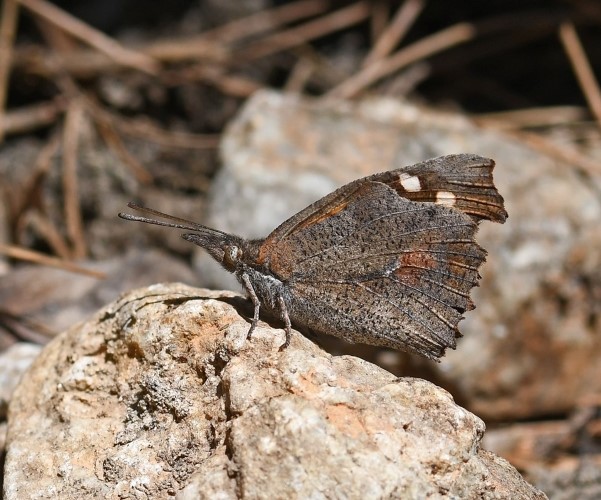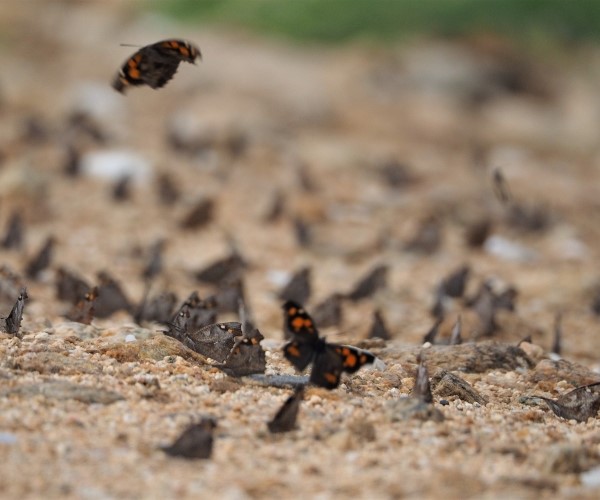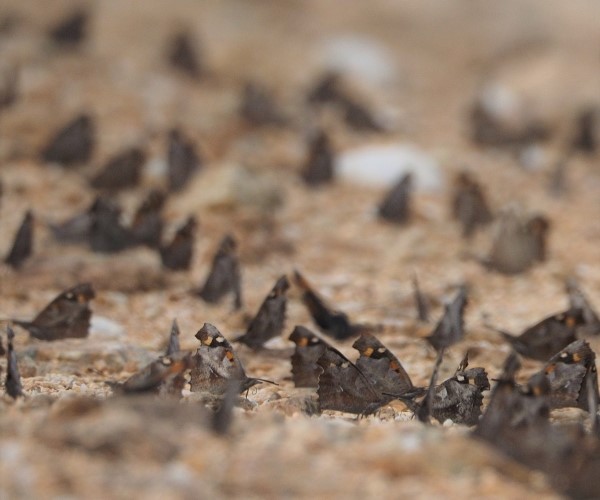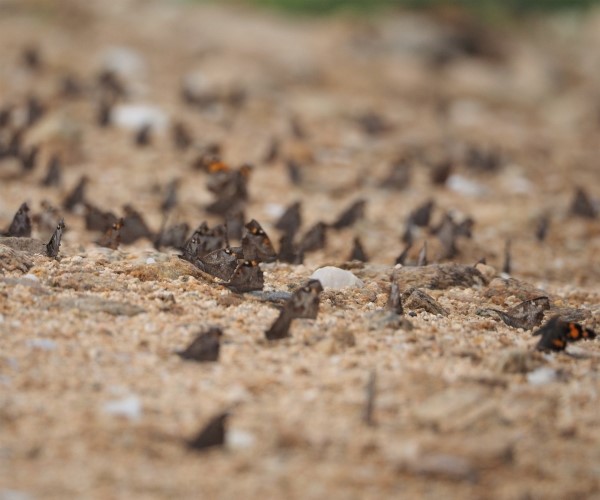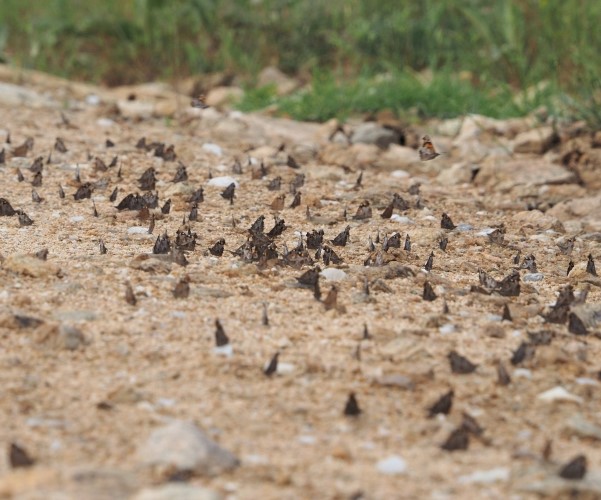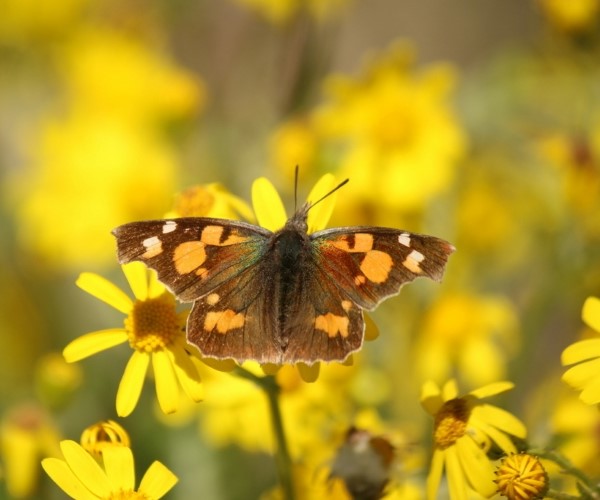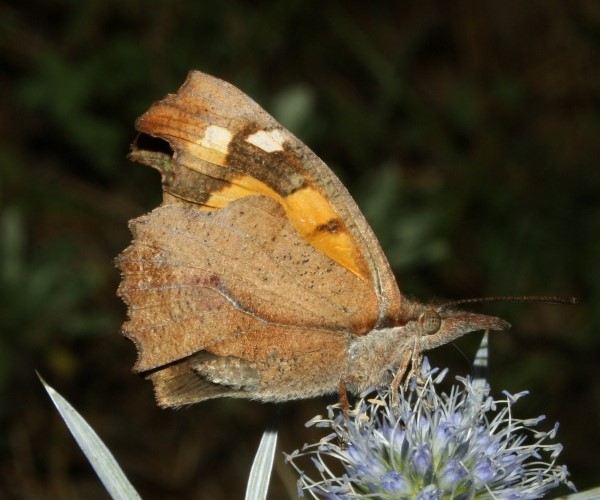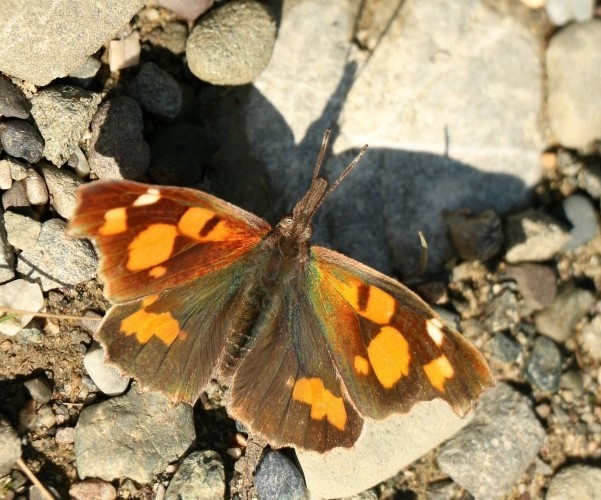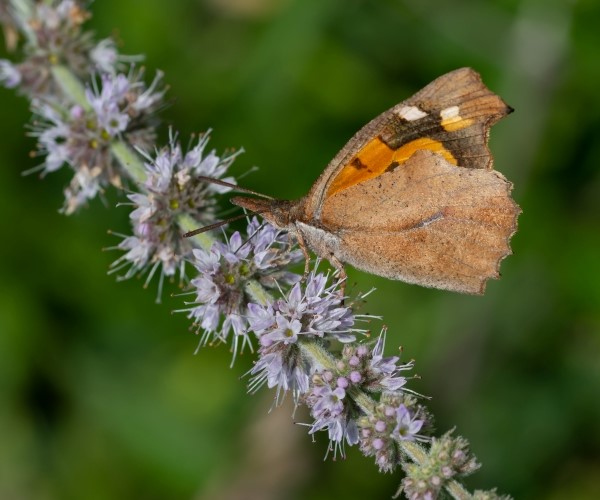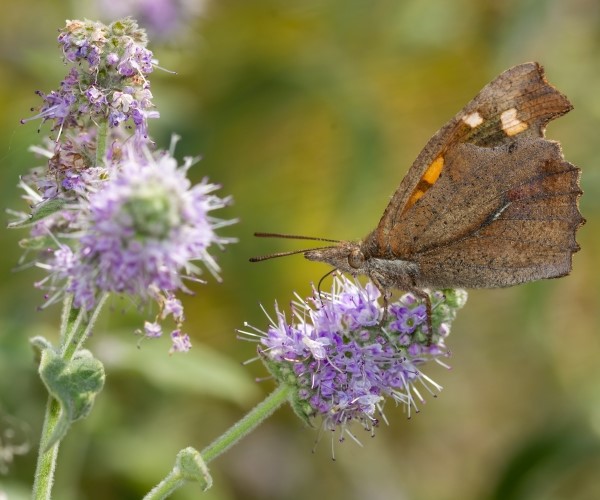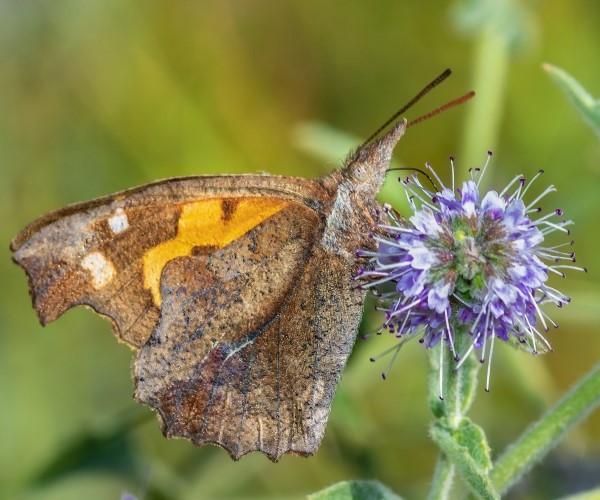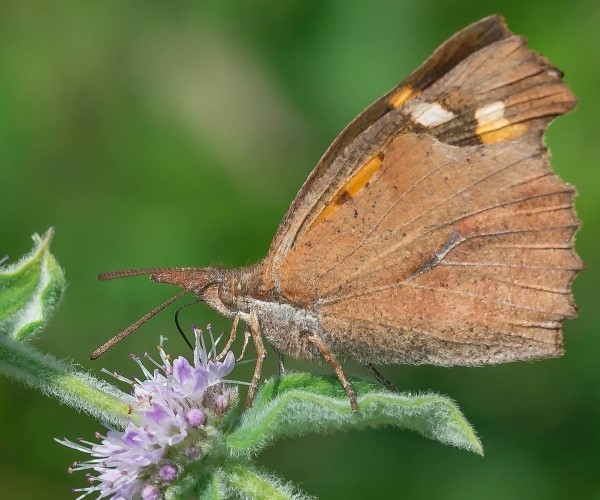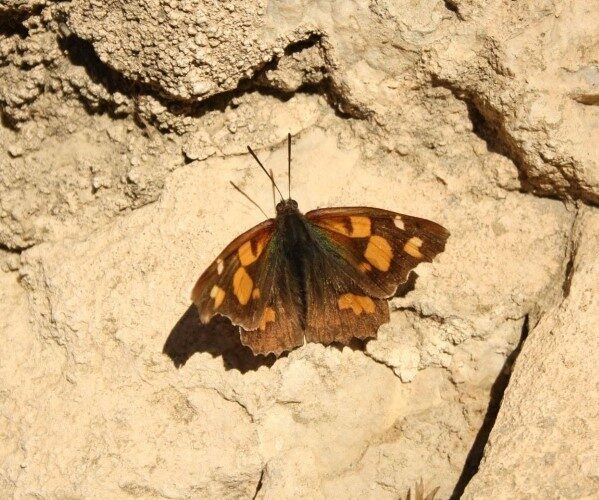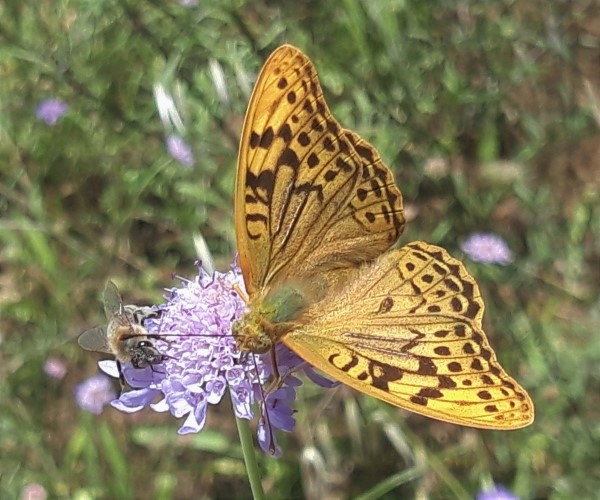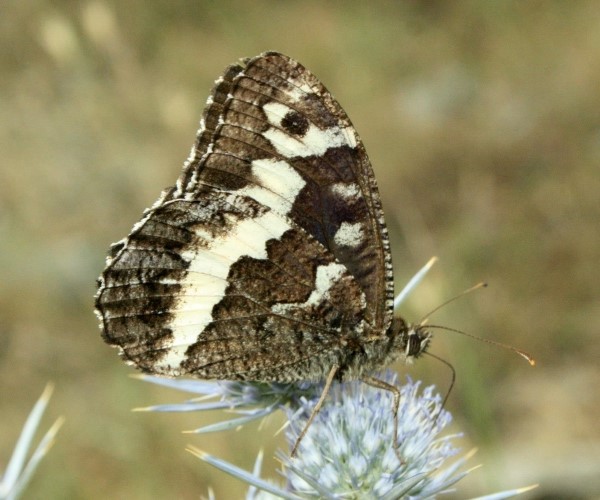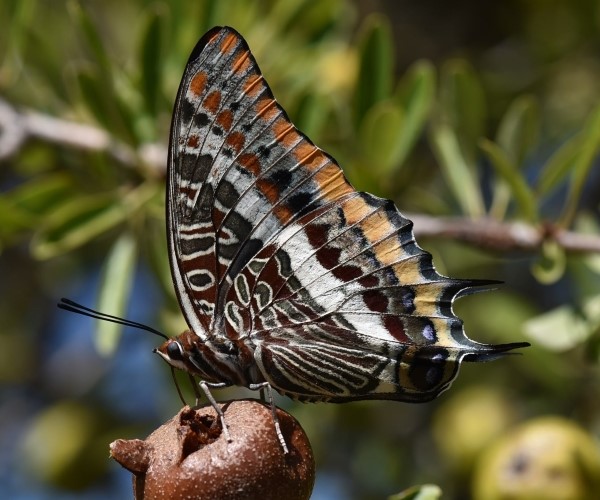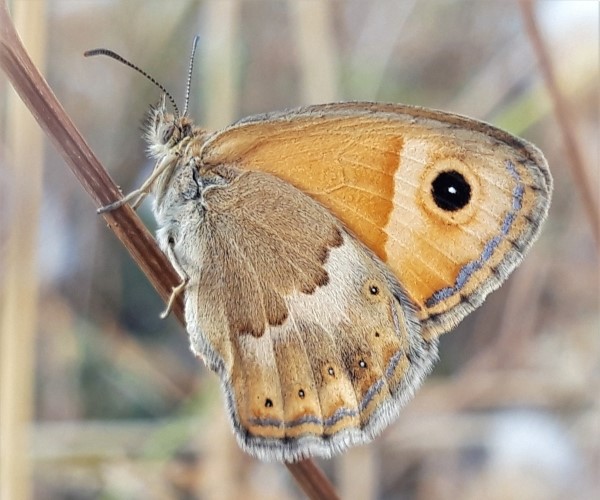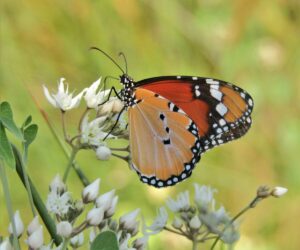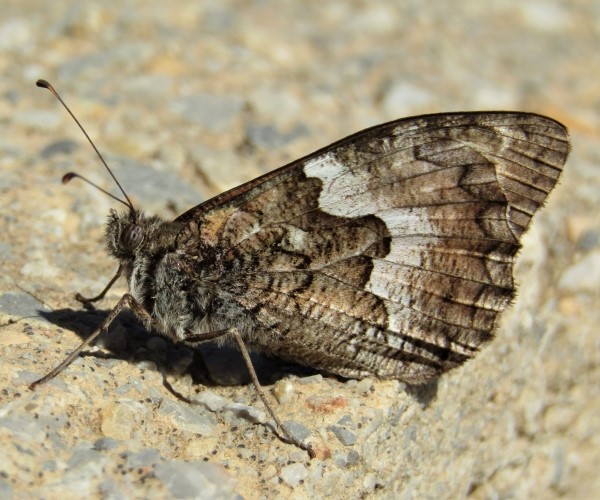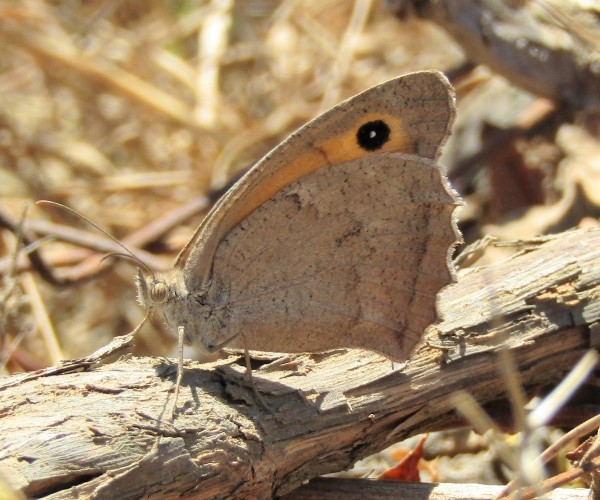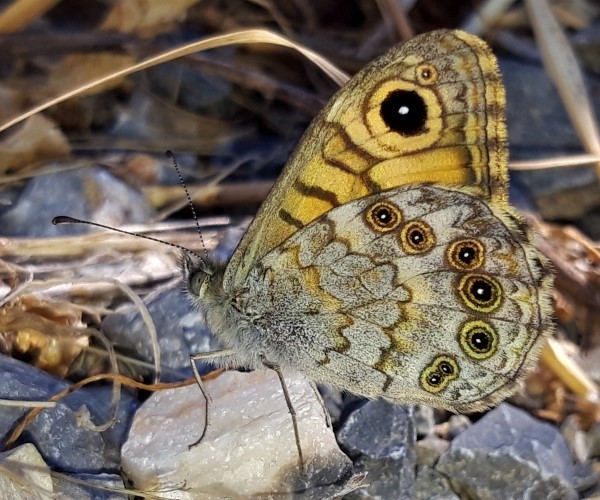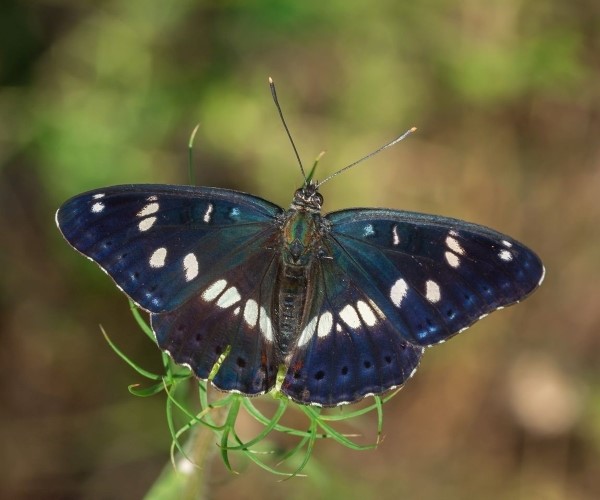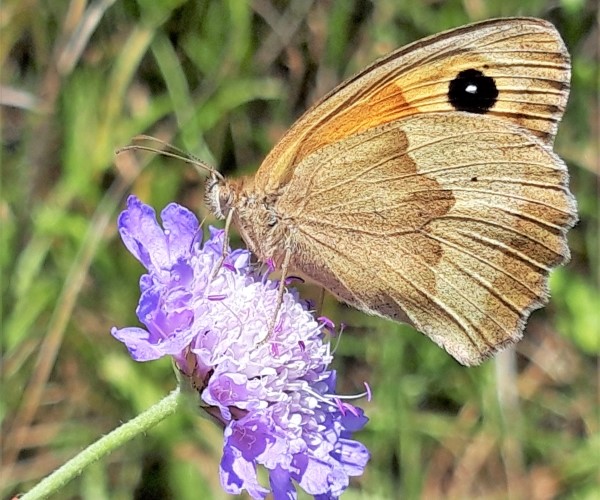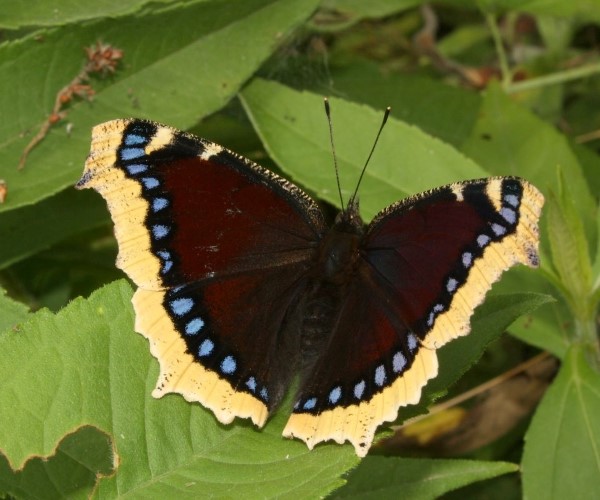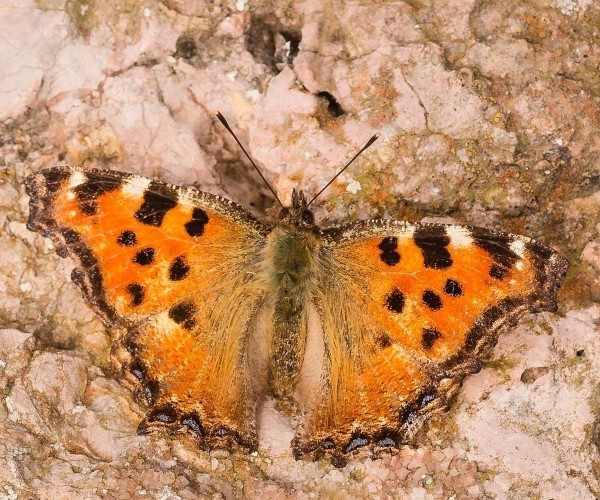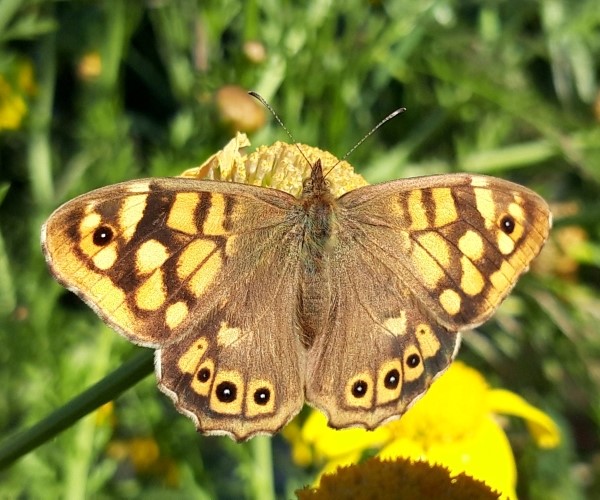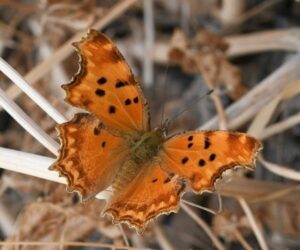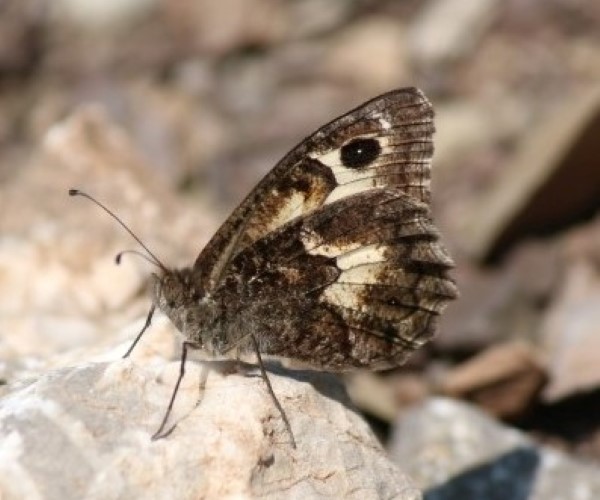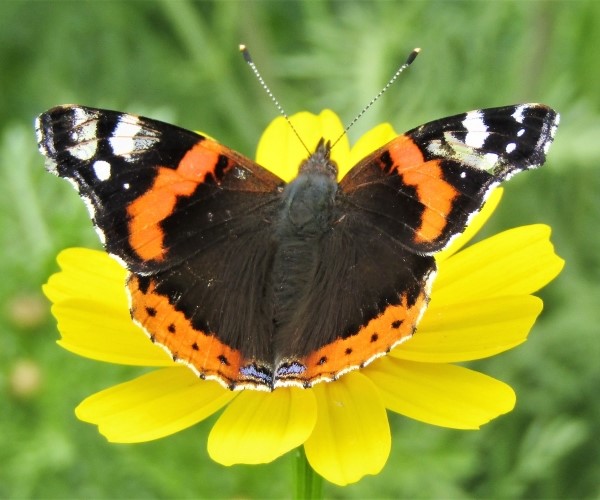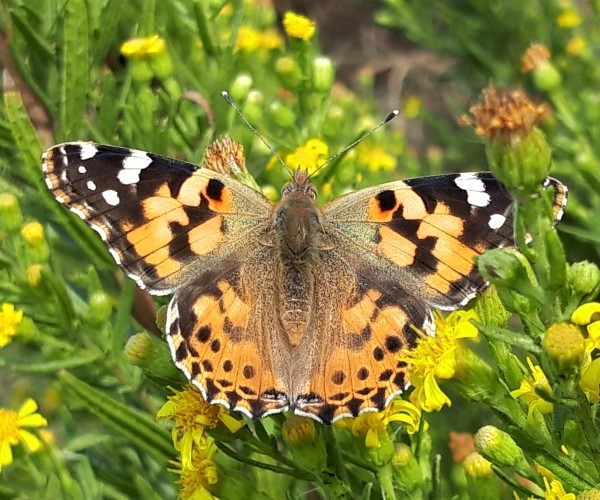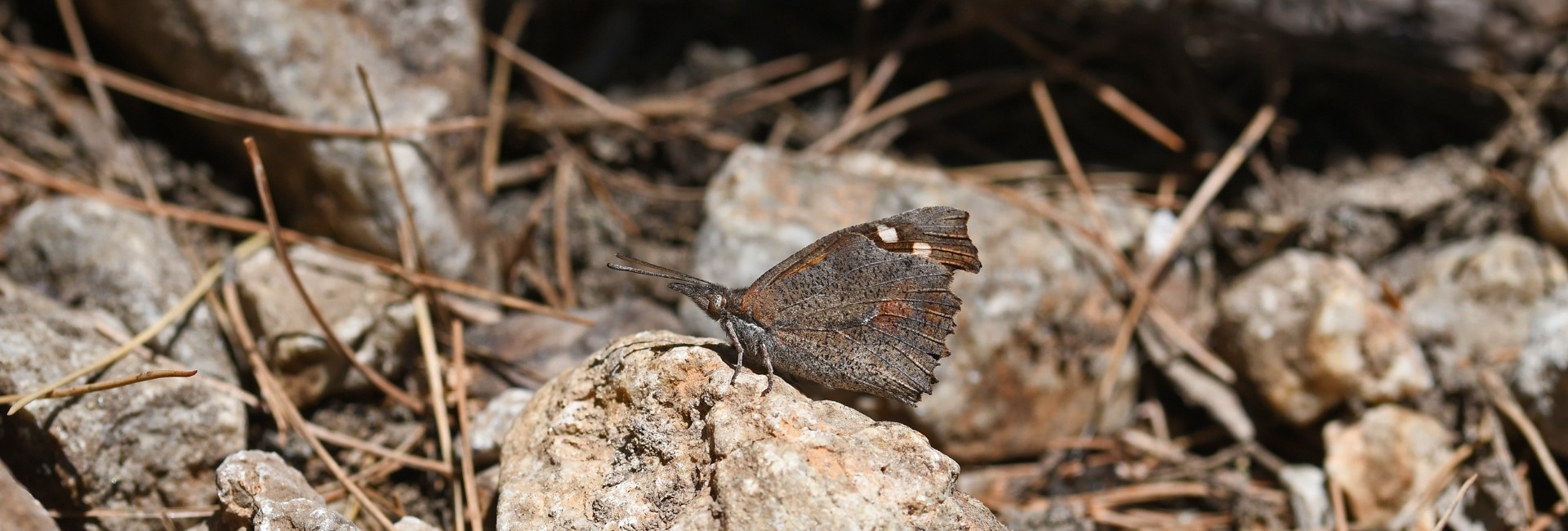
Libythea celtis, Crete - photo © Fotis Samaritakis
Libythea celtis
BUTTERFLY INFO
Libythea celtis is a butterfly of the family Nymphalidae on the island of Crete, Greece.
Scientific name
Libythea celtis (Laicharting, 1782)
Common name
European Beak, Nettle Tree Butterfly
Classification
Family: Nymphalidae > Subfamily: Libytheinae > Genus: Libythea
Wingspan
Male to female: 35-40 mm
Appearance
Both sexes have a similar appearance, but the distinctive characteristic between males and females are the legs; females have all legs fully developed but males have reduced forelegs useless for walking.
The butterfly has a highly dentate external margin of the wings. The upper side of the wings is dark brown colored with orange marks in the marginal and postdiscal area, two small white marks, and orange in the cell.
The underside of the wings is light brown colored. The hindwing is light brown with a small thin white line.
Behavior
It has a very strong flight and usually stays on the ground. In warm hazy weather conditions, the butterfly often basks on foliage several meters above ground level, but never opens its wings when on the ground.
Habitat
Libythea celtis in Crete live in dry sunny slopes, scrub, fields with light scrubland around the food plants.
Food plant
The larvae feed on Celtis australis.
Flight Period
The butterfly flies in one generation per year.
| Jan | Feb | Mar | Apr | May | Jun | Jul | Aug | Sep | Oct | Nov | Dec |
Remarks
Libythea celtis has very limited distribution in Crete. It has a unique appearance in Crete and can’t be confused with any other butterflies of the island.
Status*
Least Concern (LC)
Libythea celtis Distribution Map
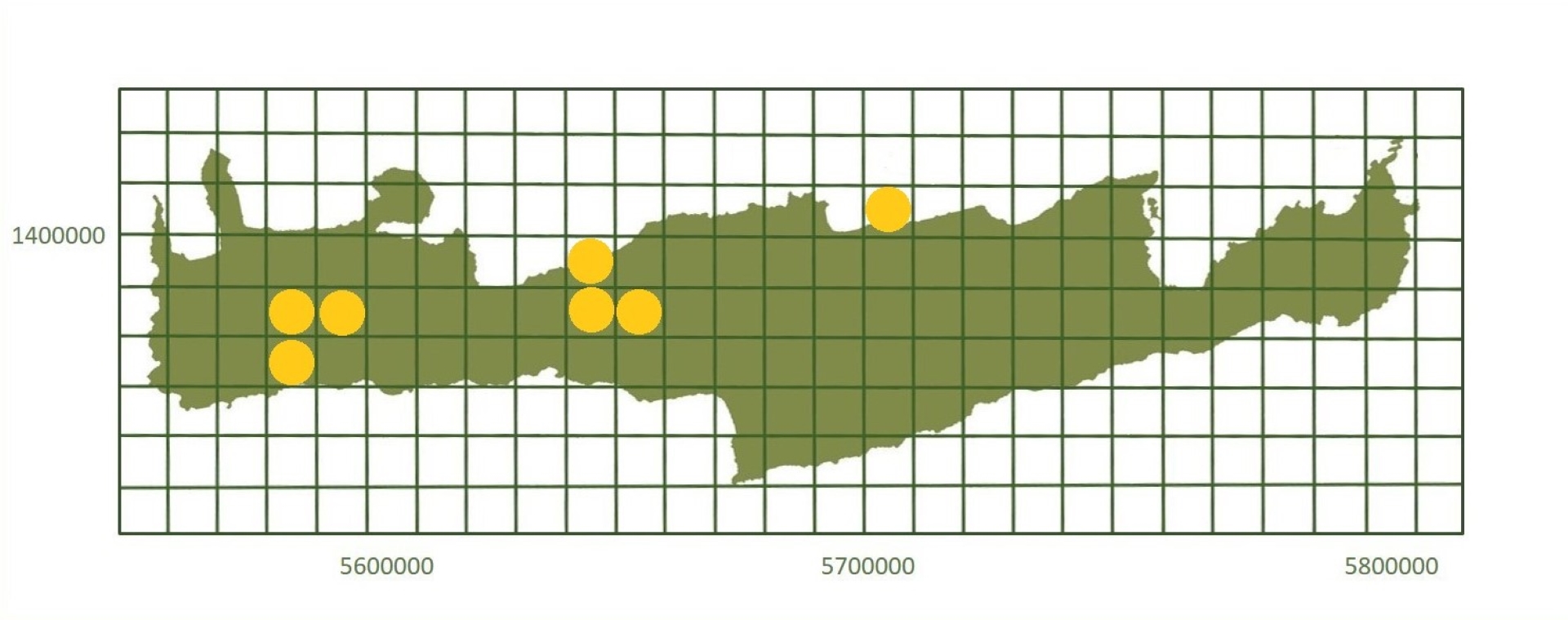
*based on http://www.pamperis.gr/THE_BUTTERFLIES_OF_GREECE/MAPS.html, updated Dec 2025 (ETRS89, grid 10X10 km)
